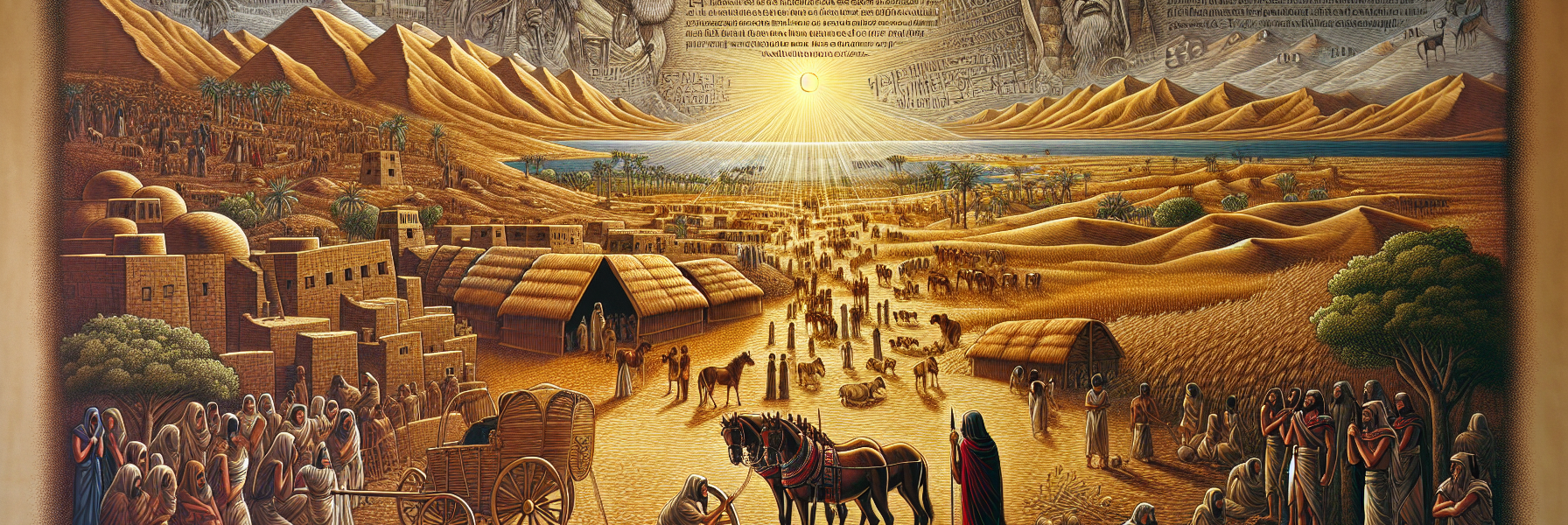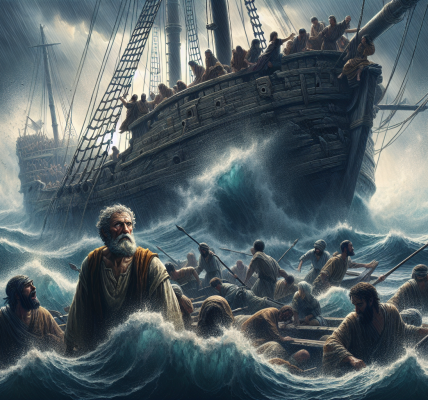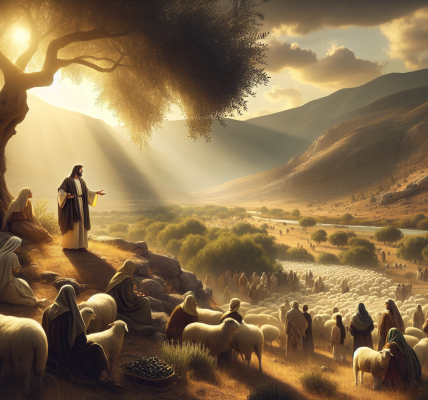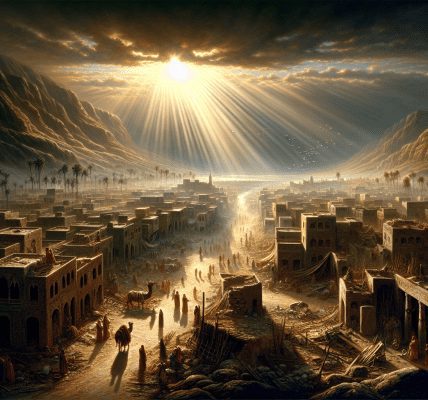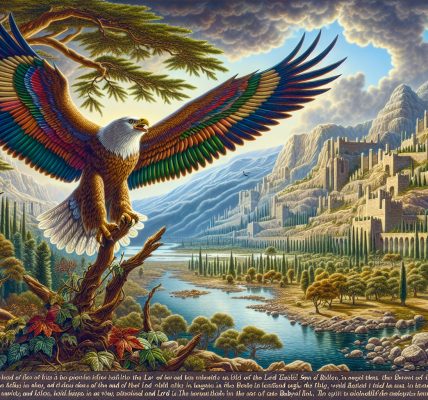**Joseph’s Wisdom in the Famine: A Story of Provision and Stewardship**
The sun hung low over the land of Egypt, casting golden rays across the fertile fields of Goshen. The air was thick with the scent of earth and livestock, a welcome respite for Jacob and his family after their long journey from Canaan. Pharaoh’s chariots had escorted them with honor, for Joseph, the second ruler of Egypt, had declared that his father and brothers would dwell in the best of the land.
As the days passed, the famine grew more severe, stretching its bony fingers across Egypt and Canaan alike. The people cried out for bread, their stores long depleted, their children weak with hunger. But in Egypt, Joseph had prepared. The storehouses, once filled to the brim with grain, now became the lifeblood of the nation.
One day, Joseph came before Pharaoh with a report. “My lord,” he said, bowing low, “the people have spent all their silver in exchange for grain. They have nothing left to give.”
Pharaoh’s brow furrowed. “What shall be done, then?”
Joseph, ever wise, replied, “Let them bring their livestock. In exchange for horses, flocks, and herds, we shall give them food to sustain them through this famine.”
And so it was. The people brought their cattle, their sheep, their donkeys—anything of value—and Joseph gave them bread in return. For a year, this exchange continued until all the livestock of Egypt belonged to Pharaoh. Yet still, the famine pressed on.
The people returned, their faces gaunt, their voices trembling. “What can we give, my lord? Our silver is gone, our animals are yours. There is nothing left but our bodies and our land.”
Joseph’s heart was heavy, but he knew what must be done. “Bring your land to Pharaoh,” he said. “In return for seed, you shall sow the fields, giving one-fifth of the harvest to the king. The rest shall be yours, so that you may live and not perish.”
The people agreed, grateful for any measure of survival. From one end of Egypt to the other, the land became Pharaoh’s, and the people became his servants—all except the priests, for they had a fixed portion from Pharaoh and did not need to sell their holdings.
Meanwhile, in Goshen, Israel’s family flourished. They acquired property, their children multiplied, and Jacob, now an old man with silver-streaked beard and weary eyes, felt the weight of his years. He called Joseph to his side one evening, the oil lamps flickering against the tent walls.
“My son,” Jacob whispered, “the time draws near when I must sleep with my fathers. Swear to me that you will not bury me in Egypt, but carry my bones back to the land of our fathers, where Abraham and Isaac rest.”
Joseph knelt, taking his father’s frail hand. “I will do as you have asked.”
And so Jacob, reassured, bowed his head in worship, his faith unshaken even in a foreign land.
As the famine wore on, Joseph’s wisdom sustained Egypt. The people worked the fields, giving their portion to Pharaoh, yet they did not resent him, for he had saved their lives. And Israel’s family, though strangers in Goshen, grew mightily, a people set apart, waiting for the promise to unfold.
Thus, through Joseph’s stewardship, God preserved not only Egypt but the seed of Abraham, ensuring that His covenant would endure through the generations.
